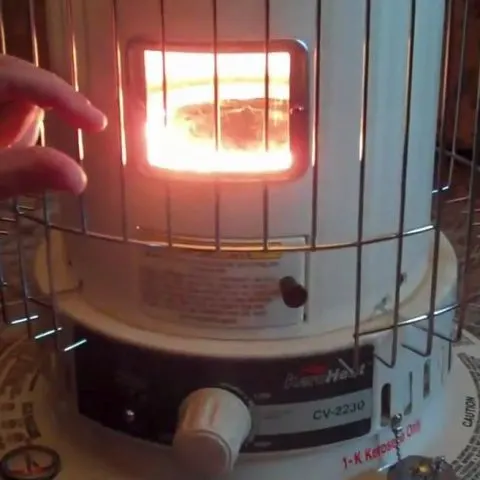Most cheap home back up heaters are powered by electricity, kerosene or propane. They are portable and easy to set up making them a cheaper and instant solution as opposed to adding a more powerful whole-house heating system. While electric backup heaters are the safest for indoor use, they simply won’t cut if:
- You are not connected to the grid
- You want a backup that will work when the power is out
- You don’t want to hike your electricity bills
Propane and kerosene heater become your only options. The question is; which is the safest of the two?
Propane is a gas that spreads faster than liquid kerosene after leakage
Safety is essential when dealing with portable heating systems. Kerosene is a liquid that requires a wick for combustion to occur. Propane, on the other hand, is a gas that will ignite as long as there is oxygen in the air making even well designed ventless propane heaters safer than kerosene if there are no accidents.
Propane’s highly flammable property and its gaseous state demand extra vigilance. A gas leak could be detrimental. Conversely, Kerosene is not as spontaneous since a spark has to be in contact with the actual liquid kerosene (or its concentrated vapor that is hard to create in open space) for a fire to ignite.
Even though manufacturers add a distinctive smell to the otherwise odorless propane to help users detect leakage, it is still easy to miss dangerous leaks. Kerosene, on the other hand, has a distinct advantage of passing the eye test in the event of a spillage.
Stockpiling kerosene is cheaper than storing propane in bulk
If you are considering stockpiling propane, you will need a high integrity pressurized tank as opposed to Kerosene that can be stored in cheaper jerrycans or containers.
Are kerosene heaters safe to use indoors?
Safety, in this case, will be divided into the risk of accidental ignition and the impact of the fumes kerosene releases when burning.
Unless there is a spill, indoor use of Kerosene is relatively safe, provided there is no contact between the liquid and any material like a curtain that may act as a wick. Thus, the storage of Kerosene should be limited to dry spaces where even a spill can’t result in fires. Threat from burning fumes
There are health concerns on Kerosene, especially after burns accompanied by the strong smell from incomplete combustion and soot. When they make their way to the respiratory tract and eyes, they prove irritable and linked to long term eye and chest complications.
Is a kerosene heater safe around babies?
If you have a baby and would like to ensure their space is well-heated, kerosene heaters may prove a challenge. Their reputation of overheating in small areas, soot, and active smell work against them. Given the vulnerability of babies, these features may prove to be a huge health risk. You risk dehydration or respiratory complications when you use kerosene heaters indoors with a baby around.
Propane vs Kerosene heater which is safer?
Propane burns efficiently and is cleaner than kerosene. You don’t have to worry about the discoloration of your walls, strong afterburn smell, soot and other noxious fumes that are common with kerosene heaters.
Are propane heaters bad for your health?
The risk of carbon monoxide poisoning due to incomplete combustion is always rife when using a propane heater. Solving this requires homeowners are counseled to ensure there is proper ventilation or sticking to vented propane heaters. Another hazard is the potential of an explosion, especially when there is a leak.
Check this too: Mr. Heater troubleshooting & How-to Guide
Backup systems that use either Kerosene or propane come in handy when living off-grid or have a malfunction in your home system. For any homeowner interrogating the perfect fit is key to ensuring you have warm days in cold weather.

